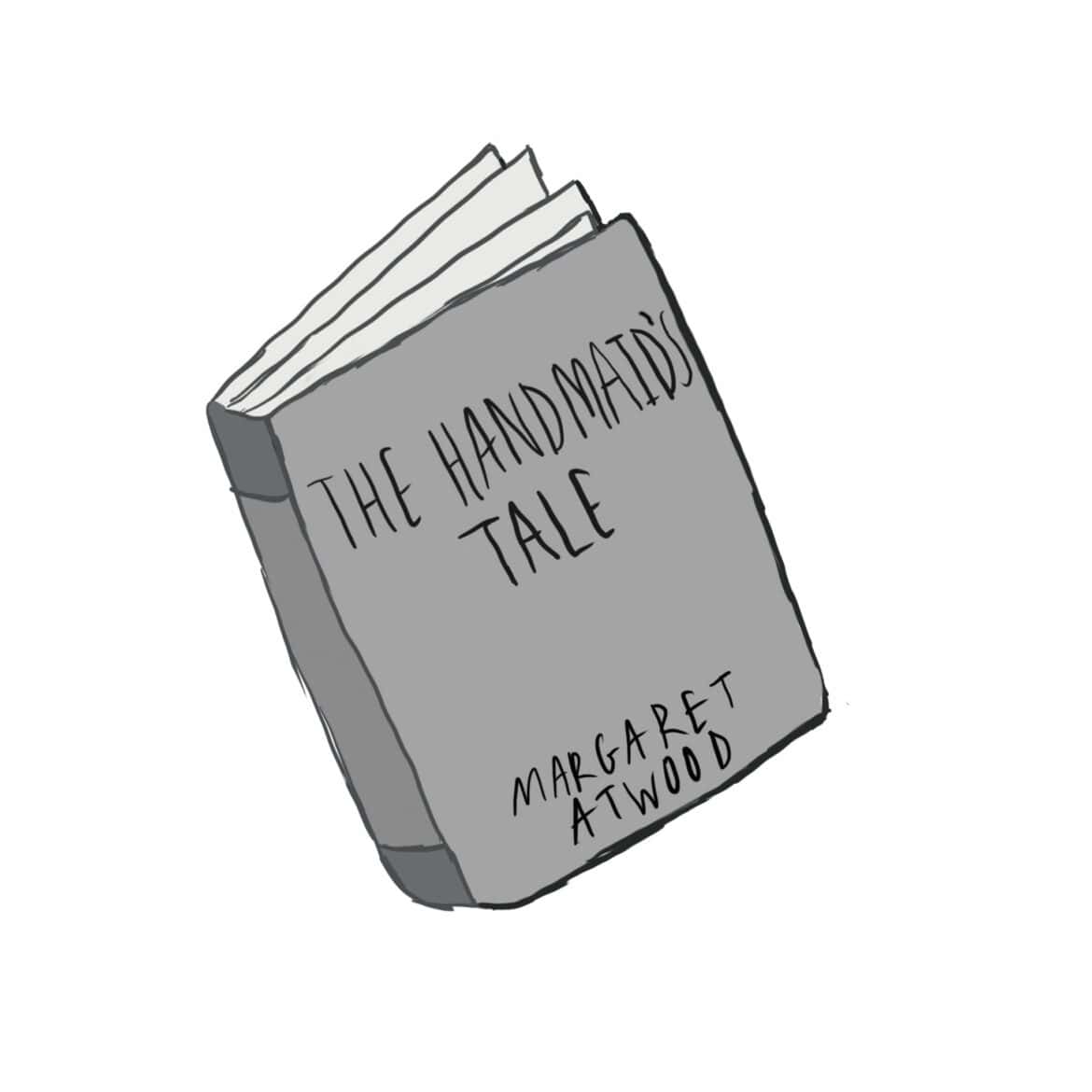Book bans: supressing critical thinking or protecting students?
Illustrations done by Iva Ekemcic and Isaac Belina
In the past few years, there has been an influx of anti-ethnic studies legislation passed in the United States, the most notable being Florida’s alteration of the nationally taught AP African American Studies course. However, because of Seattle Public School District’s Policy #0030, which aims to ensure racial and educational equity for all students, the district is able to offer courses that are being banned and censored in other parts of the country.
Roosevelt Ethnic Studies Teacher Michael Magidman, who has spent 11 years teaching in the Seattle Public Schools district as a cisgender, white male, said he has faced little pushback on the “controversial” perspectives of history he teaches. “They know that if young people are educated with the honest history of our country, the good and the bad, that there will be no more conservatives in the span of a generation…they’re trying to prevent all of you from learning,” said Magidman.
When Roosevelt students reach their junior year, they choose between two history classes: AP United States History (APUSH) and Ethnic Studies United States History. Ethnic Studies U.S. History aims to provide an education on every recorded perspective on America’s founding, particularly from marginalized groups, in a project and discussion-based course. Conversely, APUSH’s base curriculum is designed by the College Board, preparing students for a test in May. The class takes a cause-and-effect approach, continually building on what’s been previously taught. Teachers decide how to structure their classes day-to-day, with the Roosevelt format including lectures, activities, weekly quizzes and essay questions on founding documents, important figures, and historical events.
Barnes also spoke about the importance of evaluating history from all people’s perspectives, rather than a more narrow view that has traditionally been presented in “standard” history classes. Barnes and fellow APUSH teacher Daniel Gross have invested significant effort to include historical readings and documents from underrepresented voices. Readings of Black women, queer people, and indigenous people such as “A Black Women’s History of the United States”, “A Queer History of the United States”, “A Disability History of the United States”, and “An Indigenous People’s History of the United- States.”
Magidman noted, “I don’t totally accept the College Board as a rough, final authority on what should and shouldn’t be taught in the classroom. But that’s not the case in this building, because Ms. Barnes and Mr. Gross are awesome. And they have added beyond what the College Board does, and…they teach their classes talking about power structures and things like that.”
The version of APUSH taught at Roosevelt would violate Florida law, as would courses such as Ethnic Studies U.S. History, Margins & Centers, Women of Color Literature, African American Literature, and AP Psychology.
Abbey Koory ‘24 took Ethnic Studies U.S. History and Margins & Centers during her junior year, and is currently enrolled in Women of Color Literature. Koory imagines a parallel reality where she would be subjected to the same limitations as other students presently are. “I mean it makes me scared because I believe what I learned was the truth, and what I learned was the real United States history. And to think about what other students are learning and what is being missed and misunderstood is really scary – to understand that many things taught in our history classrooms affect the way that young people interact with the world and vote.”
This sentiment was also reflected by many Florida students, with a series of protests breaking out across the state in response to the controversial bills about ethnic studies and LGBTQ+ curriculum. A group of several hundred students marched the Florida Capitol building in February of 2023 following the state’s decision on AP African American Studies.
Although it is common for a curriculum to be altered to cater to local relevance, what happens when teachers are threatened for the contents of their lessons? Barnes shared her insight on the current prominence of this topic, “I have friends and colleagues that work in Florida and, you know, they have absolutely voiced being fearful of retribution against what they’re choosing to teach.”
According to Magidman, the loophole created by the vagueness of the legislation’s wording, is being used to combat white guilt, “If you look at the Florida law in question that’s sparking all of this, it’s literally about the feelings of white people, it’s that the letter of the law says that you can’t teach anything that makes someone feel uncomfortable or feel bad about their race. Never mind the fact that the way we’ve been teaching U.S. history has made everybody who’s not white feel bad about their race forever.” Although, this doesn’t always mean that a white student’s discomfort in a classroom, as a result of race-based conversation, can result in severities such as the penalization of teachers and alteration of a curriculum.
In 2012, Seattle Public Schools’ Board Policy #0030 was adopted, with the aim of ensuring that all students receive an equitable education and will benefit equally. The policy states, “ A student whose history and heritage are appreciated and celebrated will learn better and be more successful than if that student is forced to overcome a cultural barrier.” Another layer to this legislation is the routing of complaints concerning content materials. Educators in the Seattle Public Schools district can refer these grievances to higher ups on the school board, rather than constantly being in the line of fire for their teachings.
When asked to share her thoughts on the fact that Roosevelt offers classes that would violate current Florida law, Barnes’ joking response was, “Oh yeah, they all do.” Further elaborating, “That’s something that I think is so relevant to our world, and I’m looking at our history and how people have tried to manipulate history and teach it in different ways to change the dialogue. And that’s exactly what’s happening in Florida, which is tragic…It curves political thought, it curves thinking. It creates nationalism and not in a good way. It creates white supremacism, or supremacy, I should say.”
Southern lawmakers have found many censorship victories in labeling courses using what have come to be blanket terms like Critical Race Theory and Ethnic Studies. Critical Race Theory is the theory of how racial biases were developed in society and woven into the fabric of its institutions. Although this subject matter has been taught in classrooms since the 1990s, it was introduced by Professor Gloria Ladson-Billings when she taught at the University of Wisconsin-Madison. Recently the term’s meaning has been diluted to describe any courses addressing the topic of race, turning the heads of lawmakers.
Magidman proposed the idea that,“Whether we call something ethnic studies or not, is less important…The value of all of this is getting all of you young people to use your critical thinking skills to not ever accept a single structure or institution in our society as natural. Nothing we’re doing is natural, the whole idea of natural is crap. Things are the way they are because they are the result of a process that made them the way they are. So let’s investigate that process and figure out who has that benefited, who is being harmed? And where is there justice in how it’s set up?”
Koory expressed a fascination for the parallels she drew from Ethnic Studies to the world around her, that were immensely thought-provoking. She, as well as the Roosevelt teachers interviewed, expressed a profound hope, that students not only absorb the world around them through a questioning gaze, but tirelessly pursue alternate narratives. Koory expressed gratitude for her ability to take these classes stating, “I feel that I got a more well-rounded perspective on U.S. history, because U.S. history is diverse and can’t be whitewashed.”
Although many states are attempting to suppress the form of education many are receiving here at Roosevelt, educators and students continue to seek out a United States history that is complete and includes more than one perspective.



